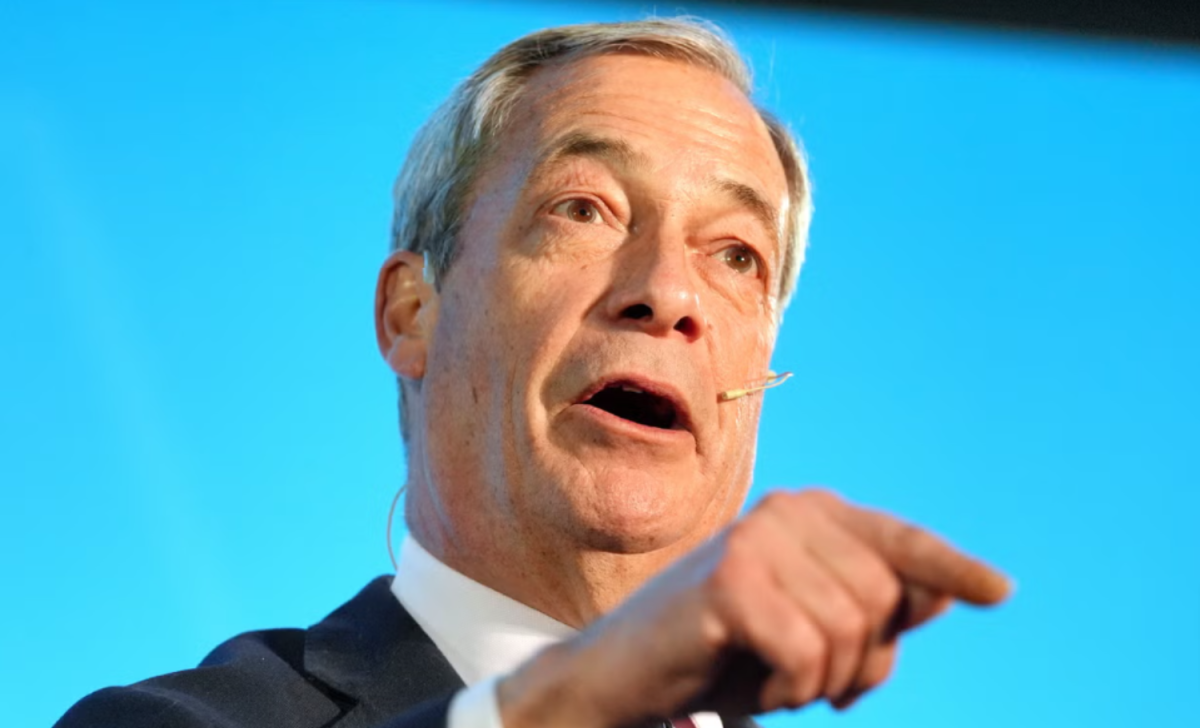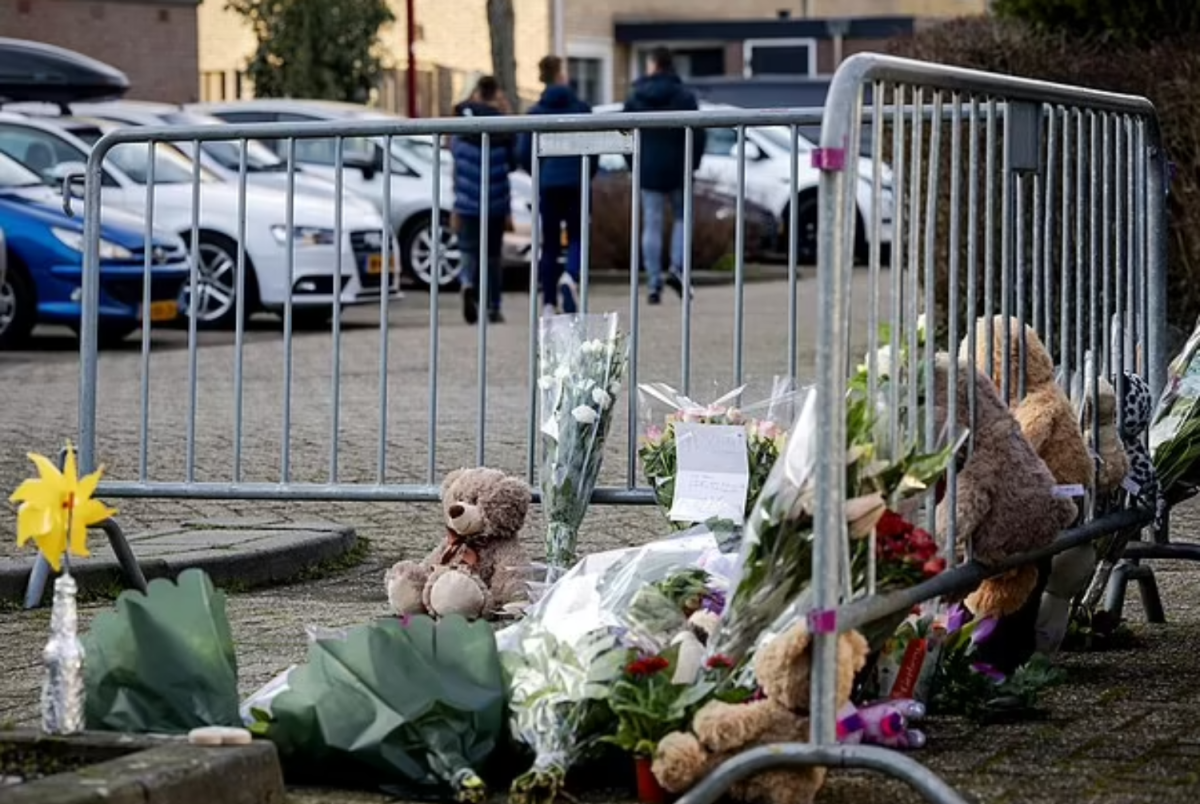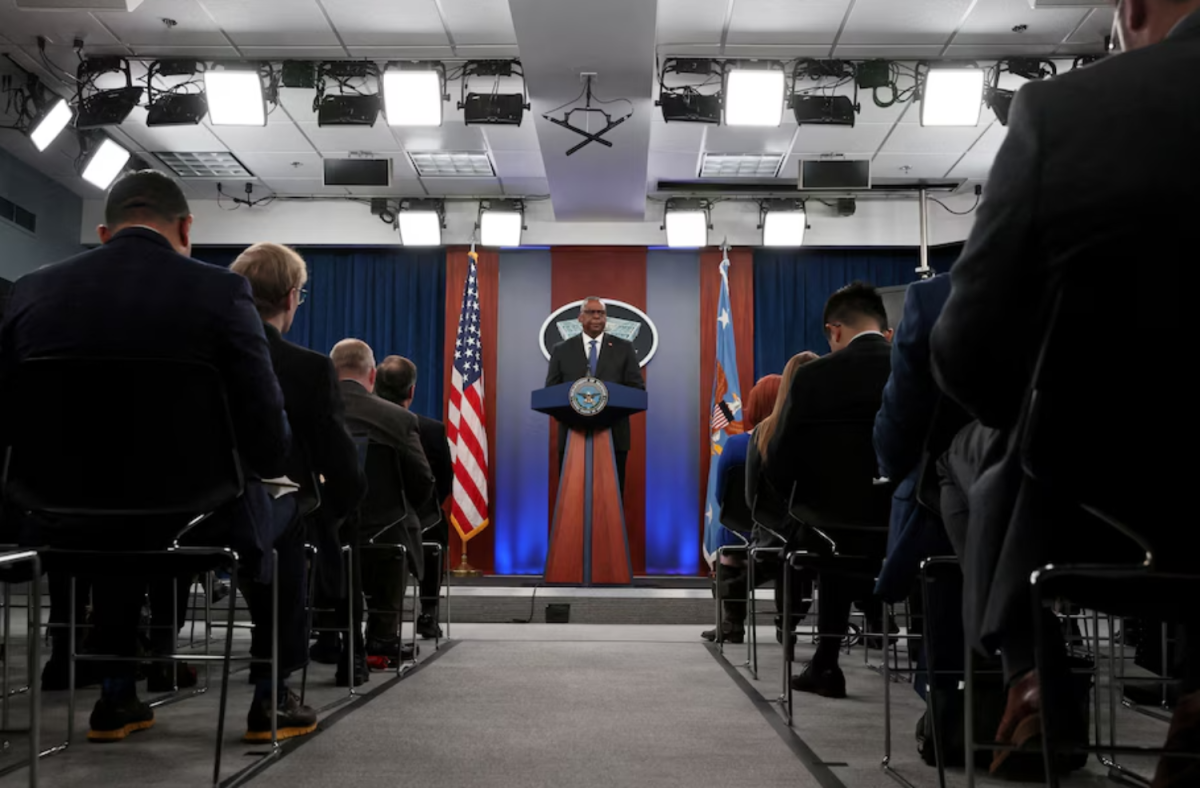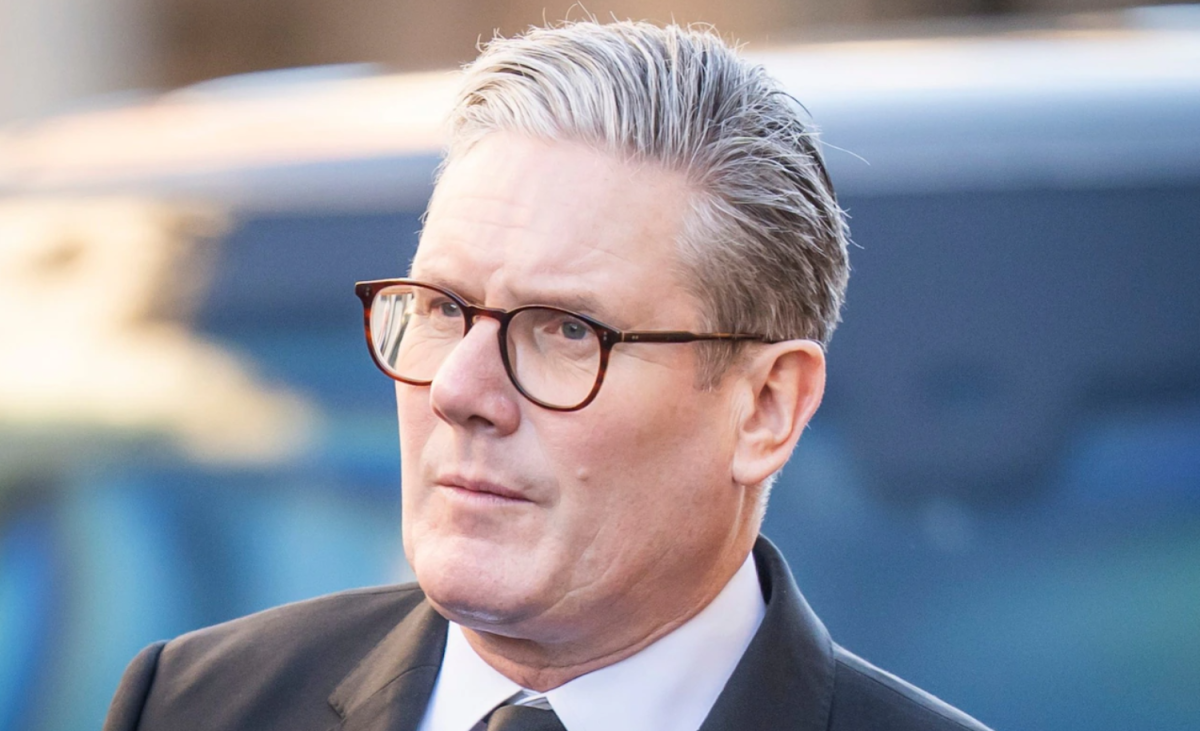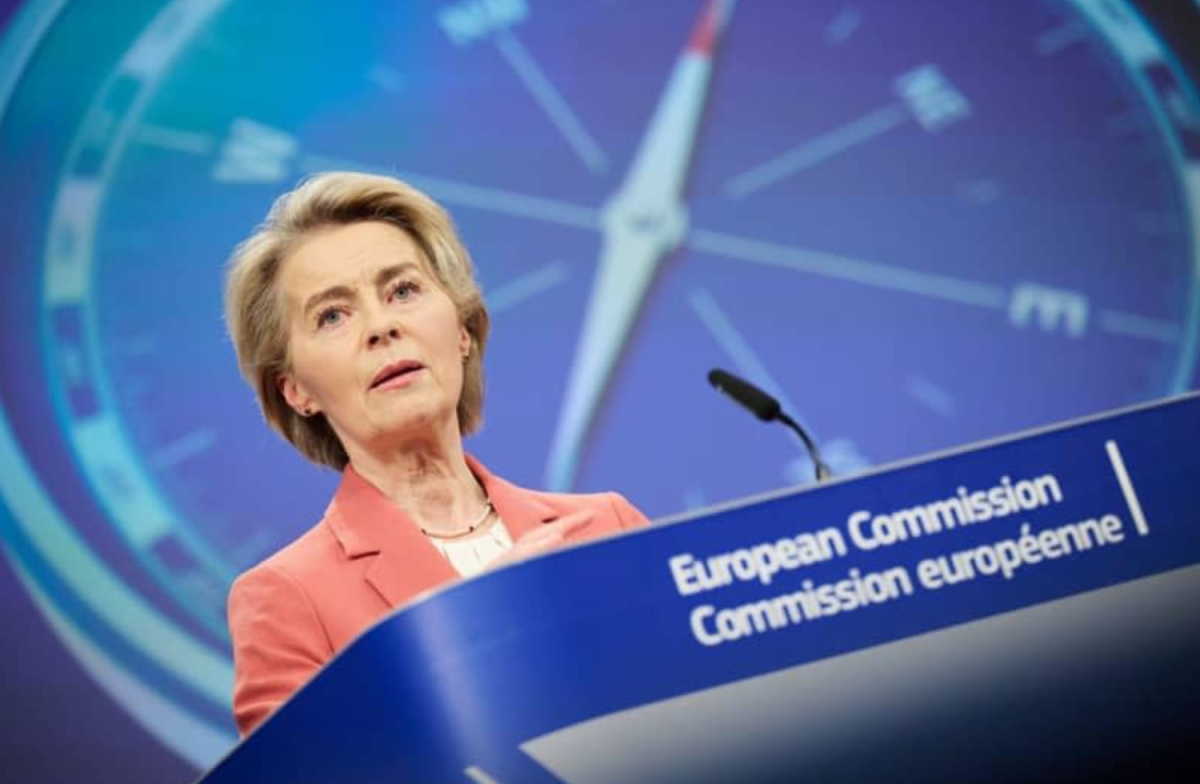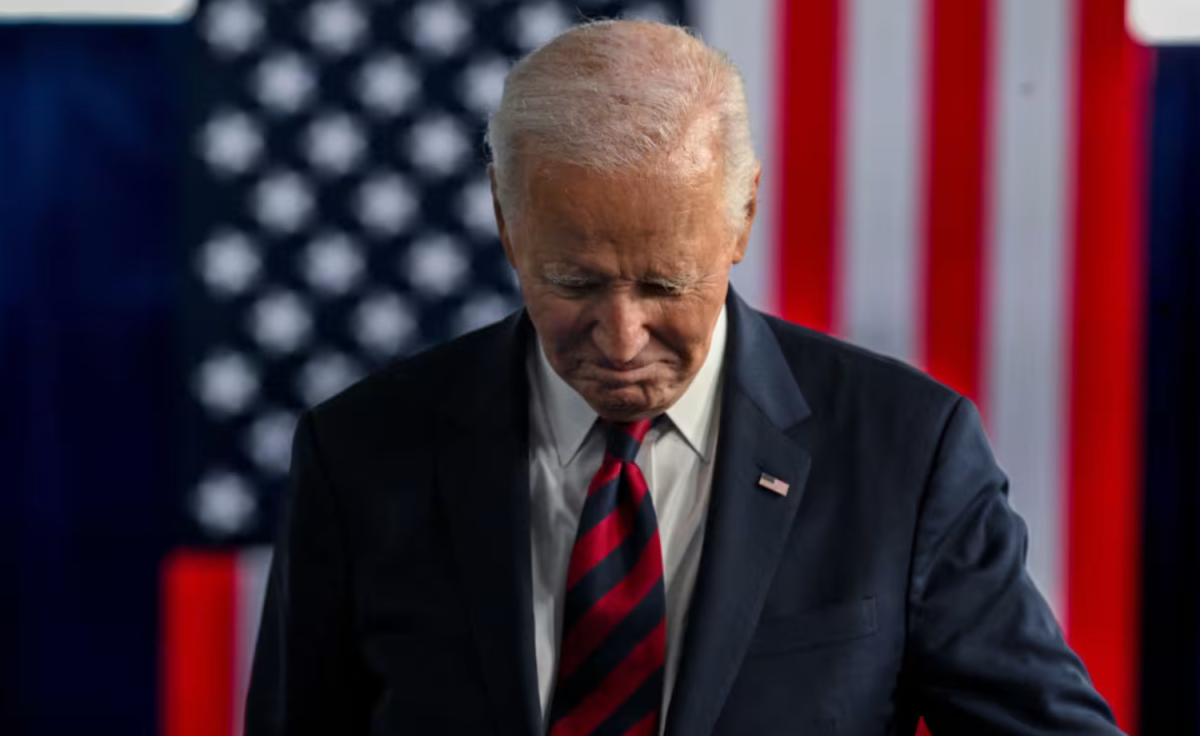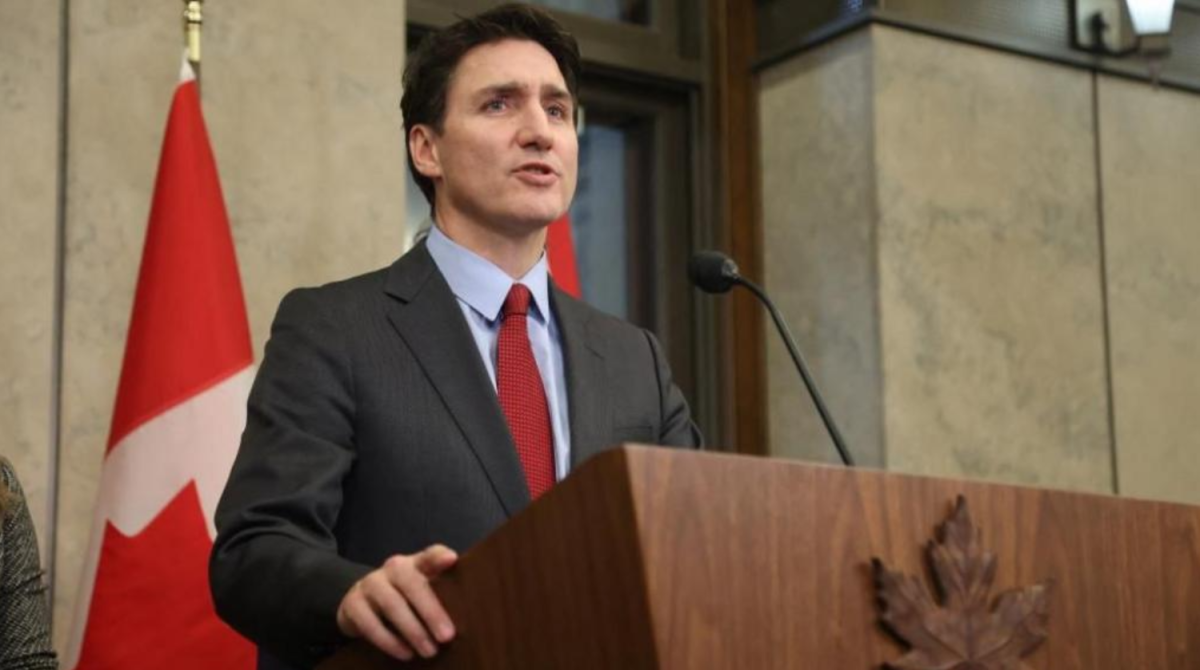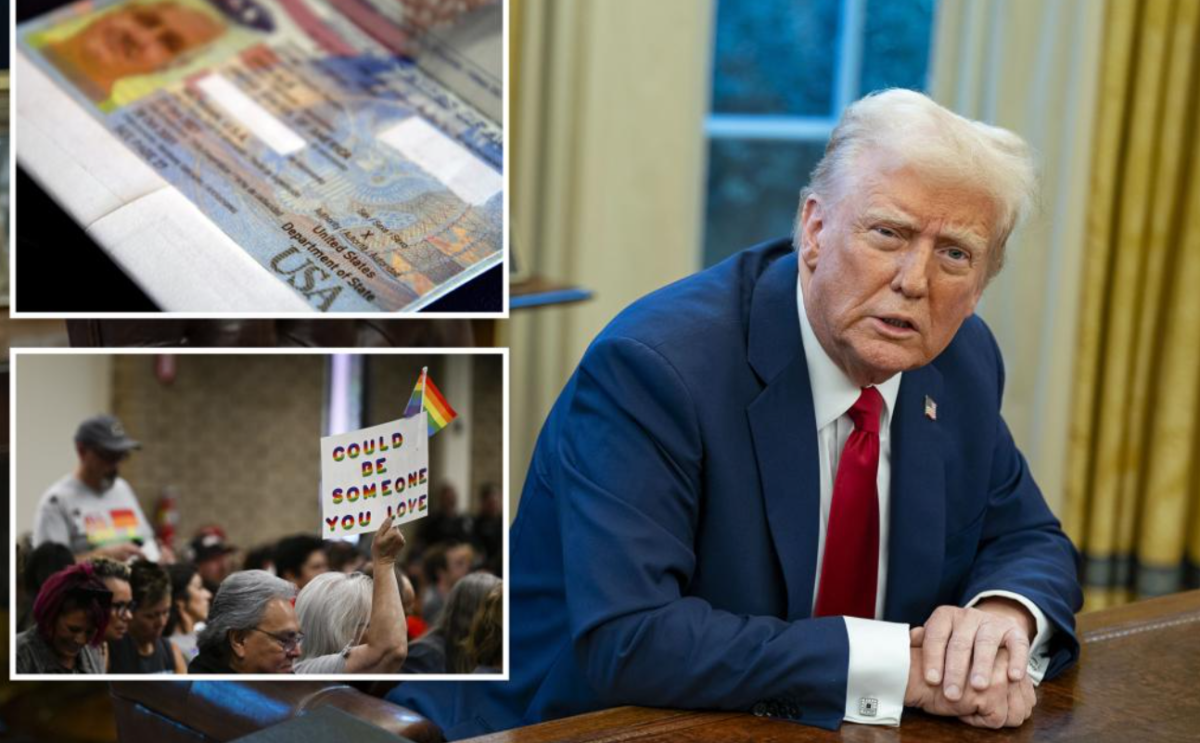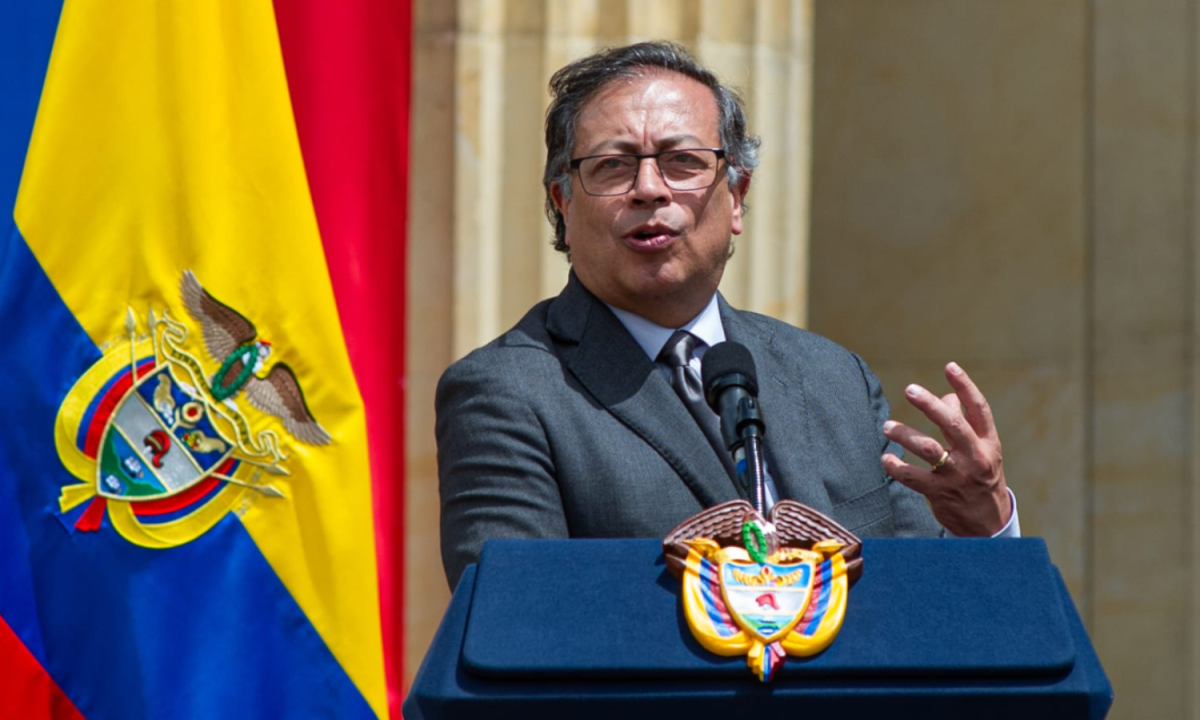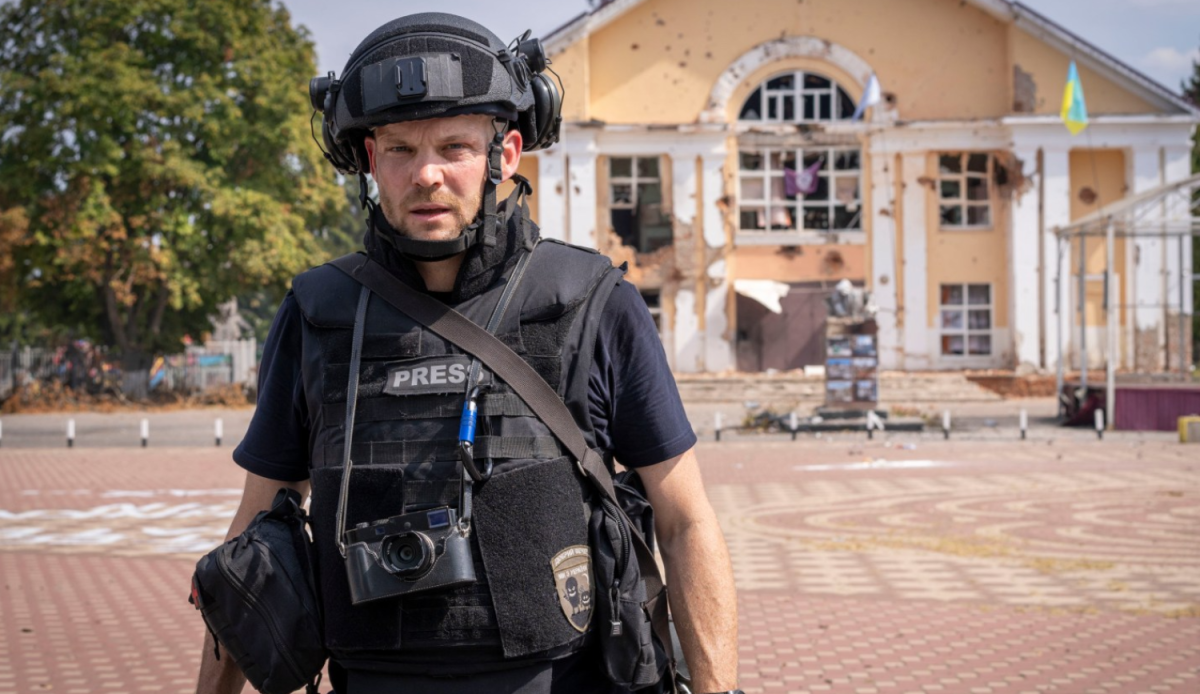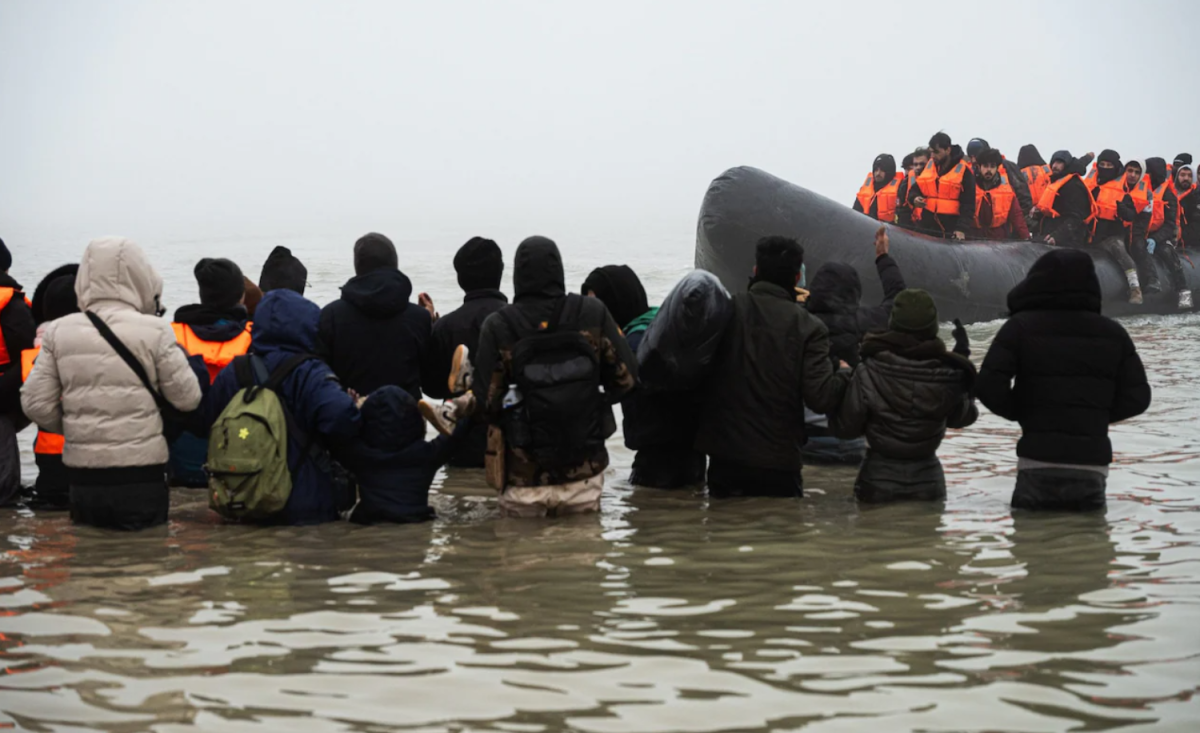-
Posts
10,807 -
Joined
-
Last visited
Content Type
Events
Forums
Downloads
Quizzes
Gallery
Blogs
Everything posted by Social Media
-
For the first time in its history, Reform UK has emerged ahead of the Labour Party in a YouGov voting intention poll. The poll, released on Monday, marks a significant shift in the British political landscape as Nigel Farage’s party gains ground. Nigel Farage celebrated the poll results by posting on X (formerly Twitter), declaring: “Britain wants Reform.” The data further indicates that Labour is struggling to retain its voter base, as only 60 per cent of those who supported the party in July would do so again. Meanwhile, one in four Conservative voters now say they would switch their support to Reform UK. Another striking revelation from the poll is that approximately 43 per cent of Conservative voters are in favour of a potential merger between the Tories and Reform UK. Additionally, men appear to be the strongest supporters of Reform UK, with 29 per cent of male voters indicating they would back the party in an election. A separate poll released on Sunday suggested that Reform UK is positioned to unseat more Labour MPs than Conservative ones if an election were held today. Just six months after establishing a presence in Parliament with five MPs, Reform UK is projected to secure 76 seats, with 60 of them currently held by Labour. Commenting on these projections, Farage emphasized the party’s growing influence, stating: “Reform UK is emerging as a major political force in Britain. The idea that Reform hurts the Conservatives more than Labour is plainly nonsense. As our polling graphically shows, the vast majority of seats Reform would win if there was an election today are from Labour, as are most of the seats they would take on a swing of 3 per cent or less.” The poll also sheds light on the shifting ideological composition of Reform UK’s supporters. While strong anti-immigration sentiments were a key factor among those who voted for the party in the 2024 general election, newer supporters hold a more diverse range of views. Farage acknowledged this shift, noting: “This includes a sizeable group of voters who are actually quite positive towards the benefits of immigration and multiculturalism but increasingly feel the main parties have failed and it is time for something new.” Based on a report by The Independent 2025-02-04
-
A shocking tragedy unfolded in the Dutch town of Nieuwegein when an 11-year-old girl was stabbed to death in broad daylight. Authorities responded to the violent incident, which occurred around 3 p.m. local time (2 p.m. British time) on Saturday, but despite their efforts, emergency services were unable to save the young victim's life. Authorities are currently investigating the circumstances surrounding the attack, including reports that the suspect had been exhibiting signs of confusion in the week leading up to the incident. However, police have not yet provided any indication of a motive. "In the immediate vicinity, the police arrested a 29-year-old suspect based on information from bystanders and others," Utrecht regional police said in a statement. On Sunday, investigators were seen examining a shed roof near the crime scene, where they collected what appeared to be a knife. Meanwhile, a growing number of floral tributes, teddy bears, and heartfelt messages have been placed at the site in memory of the young girl. Utrecht, the Netherlands' fourth-largest city, is home to the country's largest university, Utrecht University, along with several other academic institutions. Positioned at the center of the country, it serves as a crucial hub for both road and rail transport, boasting the busiest railway station in the nation. The heartbreaking loss of such a young life has sent shockwaves through the community, leaving many searching for answers as police continue their investigation. Based on a report by Daily Mail 2025-02-04
-
In a move that signals a shift in media access at the Department of Defense, the Pentagon announced late Friday night that it will implement an annual rotation system for news organizations occupying dedicated office spaces. The decision will see long-established media outlets such as NBC News, The New York Times, NPR, and Politico vacate their offices to make way for new organizations, including the New York Post, Breitbart News, One America News, and HuffPost. The policy, called the “Annual Media Rotation Program,” is designed to give outlets that have not previously had the opportunity to work from the Pentagon's dedicated office spaces a chance to do so. The change will take effect on February 14, according to a memo sent to Pentagon reporters and signed by senior communications official Jonathan Ullyot. However, no criteria were provided for how the outlets were selected, and the Pentagon stated in an email that “no additional information will be provided at this time.” Officials declined to comment further on Saturday. Despite the office space changes, the memo clarified that the outlets losing their desks will remain members of the press corps with continued access to briefings, travel opportunities, and coverage areas. “The only change,” it stated, “will be giving up their physical workspaces in the building to allow new outlets to have their turn to become resident members of the Pentagon Press Corps.” All credentialed reporters will still be able to work from the Pentagon, though without dedicated desks. The move marks a significant shift in media access, as previous administrations, including the Trump administration, did not implement such a rotation. During Trump’s presidency, the Department of Defense managed media access differently, choosing which reporters attended trips rather than maintaining a fixed roster. However, such practices were not considered unusual at the time. More than two dozen news organizations currently operate from the Pentagon to cover military affairs, including major agencies such as the Associated Press and Reuters, as well as niche publications like Stars and Stripes. The designated media workspace, known as the Correspondents’ Corridor, consists of shared offices, desks, and cubicles used by accredited Pentagon press corps members. The impact of the change is expected to be particularly significant for NBC News, as the Pentagon has dedicated live broadcast spaces for major networks such as CNN, Fox News, ABC, and NBC. Meanwhile, HuffPost’s inclusion in the new rotation surprised some Pentagon reporters, though the outlet has previously applied for and been granted press credentials. HuffPost clarified that it had not sought to displace other media organizations but welcomed the opportunity to provide in-depth coverage of the Department of Defense. “If the Trump administration and Secretary Hegseth are interested in more hard-hitting coverage of their stewardship of the Defense Department from HuffPost, we are ready to deliver,” said Lizzie Grams, a spokesperson for HuffPost. The decision raises questions about how future rotations will be handled and whether other long-established news outlets will be affected in subsequent years. As the policy takes effect, many in the press corps will be watching closely to see how it influences coverage of the Pentagon and access to key military officials. Based on a report by WP 2025-02-04
-
The United Kingdom finds itself in a precarious position as President Donald Trump ramps up his trade war, imposing tariffs on America’s closest neighbours and allies. With Canadian lumber, Chinese smartphones, and Mexican tequila now facing steep price hikes in the US, the fear in Whitehall is that Britain may be next in line. Trump has made no secret of his willingness to target Europe, recently warning that Brussels could face “very substantial” tariffs. After levying 25% duties on Canada and Mexico and 10% on China, he made his intentions clear when asked whether he would extend the measures to the EU. “Am I going to impose tariffs on the European Union? Do you want the truthful answer or should I give you a political answer? Absolutely, absolutely,” he told reporters. “The European Union has treated us so terribly.” Sir Keir Starmer and his government are scrambling to ensure Britain stays out of the fray, citing US trade data that shows America buys more from the UK than it sells. But experts warn that no country is truly safe from Trump’s unpredictable policies. The UK’s fragile, debt-laden economy faces serious risks, even if it is not directly targeted. “At the moment we’re hoping we will be faced less [with tariffs], but there may yet be an announcement of tariffs on everybody of 10%,” says David Henig, UK director of the European Centre for International Political Economy. “Right now, nobody knows anything, and it’s really difficult to plan or prepare for. That uncertainty is actually worse, I think.” In an effort to shield Britain, Starmer has appointed Labour heavyweight Lord Mandelson as the country’s ambassador to Washington. Mandelson, who previously criticized Trump, has changed his tune, calling the US president a “nice” and “fair-minded person” for whom he has “fresh respect.” Other key figures in Starmer’s government, including Treasury Chief Secretary Darren Jones and Foreign Secretary David Lammy, have been publicly emphasizing the strength of the UK-US relationship. Even if the UK avoids direct tariffs, the economic fallout from Trump’s actions will be felt in Britain. One of the gravest threats is the impact on borrowing costs, which could affect both the Treasury and ordinary homeowners. Julian Jessop, an independent economist, warns that the greater danger is “the spillover from higher US interest rates rather than the impact of tariffs themselves. This is bad news for the UK because of the knock-on effect on our interest rates and our public finances.” Chancellor Rachel Reeves is already facing pressure over rising borrowing costs and the risk of breaching her fiscal rules. She will be carefully studying forecasts from the Office for Budget Responsibility (OBR) ahead of her spring statement in March. If the numbers don’t add up, she may have no choice but to implement spending cuts or tax hikes. Britain’s economy is also deeply tied to the European Union, and a slowdown in the EU due to US tariffs would have serious consequences. “It’s a negative for the world economy and negative for the UK,” says economist Richard Thwaites. Despite Brexit, the EU remains Britain’s largest trading partner, accounting for £356bn in exports in 2023—42% of all UK trade. Jessop warns that tariffs on Europe would be particularly damaging. “If he imposes tariffs on the European Union, which it looks like he will, that’s another blow to an economic region that is already very fragile. The biggest knock-on effect, I think, would come from tariffs on the EU rather than from what is proposed on China, Mexico or Canada.” He adds that the UK has already suffered from weak export demand, largely due to sluggish growth in key European economies. “One of the reasons why UK exports have been weak over the last few years, arguably I think more important than Brexit, has been the weakness of demand in these countries. Germany is in a five-year recession and will be particularly vulnerable if or when Trump imposes tariffs. So we are vulnerable from that direction.” For now, British officials are left with little choice but to try and stay in Trump’s good graces. Figures like Mandelson are suddenly eager to praise the president in the hope that he will spare Britain from the worst of his trade war. But as uncertainty mounts and economic risks grow, the UK may find that avoiding the fallout is easier said than done. Based on a report by Daily Telegraph 2025-02-04
-
Bill Maher has taken aim at what he sees as the left’s hesitancy to criticize China, declaring that the foreign superpower has become “the new Islam” in political discourse. During Friday’s episode of Real Time, Maher raised concerns about China’s rapid technological advancements, particularly in artificial intelligence, and accused liberals of being unwilling to acknowledge the country’s threats for fear of racial insensitivity. Discussing China’s recent AI breakthrough, DeepSeek, Maher compared the moment to the Cold War’s “Sputnik moment” for the United States. He also pointed to former FBI Director Christopher Wray’s warnings that the Chinese Communist Party is deploying “malware” to target American civilians and is developing Salt Typhoon, a program capable of monitoring the text messages of every American. “And it is kind of an evil empire, you know,” Maher said. “And this kind of gets back to the DEI thing because when you make everything about race, not good!” He argued that political correctness has stifled honest discussions about China, citing the debate over the origins of COVID-19. “I mean, we couldn’t look into the origins of COVID being from the lab, which now the CIA, this week, has joined the FBI and many other organizations saying it probably did come from a lab. I said it from the beginning. It’s being studied in this lab where it breaks out. Really? We’re gonna even wonder about this? Now, maybe it was a bat… [but] we couldn’t say that because The New York Times said to even look into that is racist.” Maher referenced a 2021 tweet from a New York Times science and health reporter, who claimed that the lab-leak theory had “racist roots” and was not “plausible.” He criticized this approach, arguing that refusing to acknowledge China’s role in global threats only hinders important conversations. “China’s like the new Islam. We can’t be honest about them because they’re not White. And China, okay, I’m sorry, kids, they do some bad things, China. And we should just recognize that,” Maher said. British writer Dan Jones agreed, blaming leftist ideology for restricting critical thinking. “This is one of the broader problems with this obsession of all of these ideologies from the left,” Jones said, “is that it hamstrings you in terms of thinking common sense pol—” “Thinking!” Maher interrupted. “Thinking,” Jones continued in agreement, “because you know if you’re framing it in terms of a war, you’re fighting with one arm tied behind your back. You’re just not thinking about the world as you see it, you’re optimizing the signifying to the group around you.” Author Max Brooks echoed Maher’s concerns, criticizing what he called “guilty honkies” who prioritize easing their own guilt over confronting real-world issues. “Now the good news about this country, we have people of every ethnicity. If you want to take on not China but the Chinese Communist Party, start with Chinese Americans who fled China, right, because they’ll have honest conversations, and they’re as American as all of us and they don’t have guilty honkiness,” Brooks said. Maher agreed, likening it to other communities who have fled oppressive regimes. “Same with Muslims who fled Muslim countries,” he said. Brooks expanded the point, referencing Cuban exiles as an example of those willing to confront difficult truths about their former homelands. “You want to talk s— about Fidel Castro? Go down to Miami. You’ll find plenty of people willing to have that conversation,” he said. Maher’s critique highlights a growing debate over whether political correctness is limiting open discussion about global threats. While some argue that concerns about racism are valid, Maher and his guests warned that avoiding these conversations only weakens the ability to confront real dangers. Based on a report by NYP 2025-02-04
-
Scottish ministers are reportedly considering drastic measures to regulate cat ownership after an advisory body claimed that domestic felines pose a significant threat to local wildlife. The Scottish Animal Welfare Commission (SAWC) has put forward proposals that could see bans on cat ownership in certain areas, restrictions on their outdoor movements, and even a requirement for owners to keep their pets on leashes in designated zones. Drawing inspiration from Australia, where some housing developments prohibit residents from owning cats, the SAWC report suggests similar restrictions could be implemented in Scotland. One option explored in the report is the establishment of "cat containment areas" to mitigate the impact of domestic cats on birds and small mammals. The document, published on January 27, highlights that Scotland is home to approximately 800,000 domestic cats, all of which have "a huge potential impact… on wild animals, including birds, small mammals, reptiles, and amphibians." It further states, "In the UK, it has been estimated that 57 million mammals, 27 million birds, and five million reptiles and amphibians are brought home to pet owners each year by their cats, even though only 50-80% of free-ranging cats actually hunt." To address this issue, one proposal under consideration is a regulation preventing cat ownership in newly developed rural housing areas where wildlife is particularly vulnerable to predation. The report, titled *Responsible Ownership and Care of Domestic Cats in Scotland*, underscores the potential ecological impact of free-roaming cats, noting that they can disrupt wildlife populations through both predation and competition for resources. It also points out that other countries have already adopted stringent cat containment policies, either year-round or seasonally, to curb these effects. However, it acknowledges the potential negative effects of restricting cats to indoor environments, stating, "This approach requires investment from owners in ensuring good cat welfare and allowing behavioural opportunities for hunting, exploring, exercise, and mental stimulation." The proposals have sparked strong opposition from animal welfare groups, with the charity Cats Protection voicing concerns over the potential harm to feline well-being. Spokesperson Alice Palombo told the *Mail on Sunday*, "Scotland is a nation of cat lovers. They are great pets, whether it's providing companionship for elderly people or those living alone, comfort for people with health conditions, or helping children learn important lessons about caring for animals. We believe everyone who is able to care for a cat should be able to enjoy these benefits. Cats need to be able to perform natural cat-like behaviours if they're to live happy, healthy lives. These needs, like scratching and climbing, are more easily met in the outside world, where they can also enjoy the stimulation that comes with new smells, sights, and sounds." Palombo also dismissed the idea of requiring cats to be kept on leads, arguing that a harness would be "stressful" for the animals. In response to the report, a Scottish Government spokesperson stated, "We recommend that all cat owners should consider microchipping their pets, and ensuring the information held on them is kept up to date, as the best way of being reunited should they become lost or separated. We will fully consider the recommendations of the Scottish Animal Welfare Commission." The potential new regulations have ignited a heated debate, with concerns over striking a balance between wildlife conservation and animal welfare. As the Scottish Government reviews the recommendations, cat owners across the country are left wondering how these proposals, if implemented, might reshape the future of feline ownership in Scotland. Based on a report by The Times 2025-02-04
-
JK Rowling has fiercely criticized Graham Norton and musician Billy Bragg, accusing them of misogyny after they suggested that what many call "cancel culture" is actually just "accountability." The *Harry Potter* author, who has been the target of death threats and online harassment due to her views on gender and women’s rights, took particular issue with the idea that facing public backlash is simply a matter of being held responsible for one's words. During an appearance at the Cheltenham Literature Festival, Norton, host of *The Graham Norton Show*, challenged the idea of "cancel culture," arguing that the term itself is misleading. Instead, he described it as a form of accountability, stating, "John Cleese has been very public recently about complaining about what you can’t say. It must be very hard to be a man of a certain age who’s been able to say whatever he likes for years, and now suddenly there’s some accountability." He added, "It’s free speech, but not consequence-free. I’m aware of the things I say." Cleese, an outspoken critic of cancel culture, has frequently decried what he sees as increasing restrictions on free expression. The 82-year-old comedy legend recently announced he would be joining GB News, a move he says will allow him to speak on issues that are being "censored." He remarked that if he were to host a BBC show, "I wouldn’t get five minutes into the first show before I’d been cancelled or censored." Rowling, whose controversial opinions on gender identity have led to heated debates and backlash, was quick to respond to Norton’s remarks. Taking to social media, she wrote, "Very much enjoying the recent spate of bearded men stepping confidently onto their soapboxes to define what a woman is and throw their support behind rape and death threats to those who dare disagree. You may mock, but it takes real bravery to come out as an Old Testament prophet." She later added, "I like beards. I just don't like them when they're attached to misogynists." Musician and activist Billy Bragg then entered the debate, defending Norton’s stance. He criticized Rowling’s response, arguing that her reaction only proved Norton’s point. "Hard to think of anything that better illustrates Graham Norton’s point than the sight of someone with 13.9 million followers reacting to a call for a fair hearing for trans teens and their parents by equating it to *checks notes* support for rape and death threats," Bragg posted. At the core of the dispute is the broader debate over cancel culture. Norton’s argument suggests that figures like Rowling and Cleese, who have vast platforms and millions of followers, are not truly being "canceled" in the traditional sense. Instead, he posits that they are simply experiencing pushback for their views. However, critics of this perspective argue that cancel culture goes beyond criticism—it actively seeks to remove people from public discourse and professional opportunities. The controversy underscores the growing divide in discussions around free speech, accountability, and the limits of debate in modern society. While some argue that public figures must face consequences for their words, others believe that cancel culture is a silencing tool that stifles genuine discussion. With high-profile figures like Rowling and Cleese continuing to challenge these ideas, the debate over where accountability ends and censorship begins shows no signs of fading. Based on a report by Daily Express Scotland 2025-02-04
-
Network Rail has instructed its staff to phase out the use of the word "passengers" in favor of the more direct and neutral term "you." This shift is part of a broader initiative to make language used in public announcements and communications more relatable, informal, and inclusive. A small example of the Cancelled phrases: The organization, responsible for maintaining Britain's railway infrastructure, has issued new guidelines urging employees to use everyday language to enhance clarity and reduce frustration among customers affected by train delays and cancellations. The document advises against using words like "purchase," "obtain," and "rest assured," recommending simpler alternatives to improve engagement. The changes extend beyond terminology relating to train travel. Gender-neutral language is emphasized, with "pregnant people" replacing "pregnant women" and "parent" being used instead of "mother" or "father." Similarly, words with gendered connotations, such as "workmanship" and "mankind," are to be replaced with "quality of work" and "humankind," respectively. Traditional greetings like "ladies and gentlemen" are now replaced with "friends and colleagues" to foster inclusivity. The new approach is detailed in a 134-page document titled "Speaking Passenger," which, despite its name, actively discourages the use of the word "passenger." Network Rail’s chief executive, Andrew Haines, explains the motivation behind these changes, stating: "To put passengers first, we have to speak their language. That goes for all of us. Whoever we’re talking to, whatever the situation." With approximately 370,000 train services canceled or partially canceled in 2024—equivalent to one every 90 seconds—communicating effectively with the public has become a critical issue. The guidance encourages staff to empathize with those waiting for delayed trains, acknowledging the frustration of standing in the cold after a long day, watching cancellation after cancellation. The document contrasts a formal announcement—"All services are currently cancelled due to recent storm events. We would like to apologise for the inconvenience this may cause to your journey."—with a more conversational alternative: "I’m really sorry everyone but we’ve had to cancel all the trains this evening. A tree’s fallen across the tracks just outside the station and it’s going to take a few hours to clear." The aim is to make messages sound warmer and more human, with the belief that a more natural tone will reduce the frustration experienced by those affected. Network Rail emphasizes that these guidelines are not about adopting a corporate branding style similar to companies like Virgin or Innocent but rather about sounding approachable and friendly. Staff are encouraged to refer to people by age-neutral terms such as "younger people" or "older people" rather than "senior citizens" and to use "first name" instead of "Christian name" to avoid assumptions about religious beliefs. The guidance also touches on seasonal greetings, advising staff not to assume all customers celebrate Christmas. Instead of saying, "Merry Christmas everyone," they are encouraged to say, "Merry Christmas to those who are celebrating" or opt for neutral alternatives like "Season’s greetings" or "Happy holidays." Under a section titled "writing inclusively," the document highlights Network Rail’s obligation, as a Department for Transport-owned entity, to "eliminate discrimination, advance equality of opportunity, and foster good relations between different people." Employees are warned that failing to use inclusive language can reinforce biases and stereotypes, potentially leading to a work environment that is "humiliating, unpleasant, and alienating." It also cautions that exclusionary language could marginalize significant portions of their audience. A Network Rail spokesperson reaffirmed the rationale behind these changes, stating: "Passengers are at the heart of our tone-of-voice guidelines, which have been in place for several years and are common practice in customer-facing organisations." Based on a report by Daily Telegraph 2025-02-04
- 48 replies
-
- 11
-

-

-
President Donald Trump declared on Sunday that he would cut off financial assistance to South Africa, citing concerns over the treatment of certain groups in the country, though he did not provide evidence for his claims. "South Africa is confiscating land, and treating certain classes of people VERY BADLY," Trump stated in a post on Truth Social. "The United States won't stand for it, we will act. Also, I will be cutting off all future funding to South Africa until a full investigation of this situation has been completed!" he added. In 2023, the United States allocated nearly $440 million in assistance to South Africa, according to the most recent data available from the U.S. government. South Africa currently holds the G20 presidency, which will later transition to the United States. Last month, South African President Cyril Ramaphosa said he was not concerned about the country's relationship with Trump. He noted that he had spoken with Trump following the latter’s election victory and expressed his eagerness to collaborate with his administration. During his previous term, Trump had stated that the U.S. would investigate allegations of large-scale killings of white farmers in South Africa and violent land seizures, though the South African government at the time dismissed his claims as inaccurate. It remains unknown whether the Trump administration ever conducted such an investigation. Elon Musk, a close ally of Trump and a South African-born entrepreneur, has also expressed concern over the issue. In 2023, Musk reacted on X to a video showing a far-left South African political party singing an anti-apartheid song, "Kill the Boer," by claiming: "They are openly pushing for genocide of white people in South Africa." Based on a report by Reuters 2025-02-04
-
The European Union has warned that it will "respond firmly" if former U.S. President Donald Trump moves forward with imposing tariffs that could impact its member states. The statement comes amid growing trade tensions between the U.S. and its global partners. A spokesperson for the EU stated that the 27-member bloc was unaware of any new tariffs being imposed on its products but stressed that the use of tariffs is harmful to all parties involved. “The EU would respond firmly to any trading partner that unfairly or arbitrarily imposes tariffs on EU goods,” the spokesperson said, according to Bloomberg. “There is a lot at stake.” The warning follows Trump’s recent decision to implement significant tariffs on Canada, Mexico, and China. The executive order he signed enforces a 25 percent tariff on goods from Mexico and Canada, while Chinese imports will face a 10 percent tariff. The new measures are scheduled to take effect on Tuesday. Despite concerns over the economic consequences, Trump defended his decision, arguing that any financial hardship caused by the tariffs would be justified. He stated that the economic pain would be “worth the price.” Tensions between Trump and the EU have been escalating for months. In December, Trump threatened to impose tariffs on the EU unless it agreed to buy large quantities of American oil and gas to help offset the growing U.S. trade deficit. However, the EU already purchases substantial amounts of American energy, and additional supplies would not be available unless the U.S. significantly increased production. Further straining relations, Trump has previously expressed interest in acquiring Greenland, a territory owned by Denmark. Danish officials have repeatedly rejected the idea, with Prime Minister Mette Frederiksen having a reportedly "fiery" conversation with Trump over the matter. As trade disputes continue to unfold, the EU’s latest warning signals that it is prepared to take strong action if Trump follows through with imposing tariffs that affect European industries. Based on a report by The Hill 2025-02-04
-
Labour’s plan to create 1,000 jobs in Aberdeen through its flagship GB Energy initiative could take up to 20 years, according to the company’s chairman. The state-owned energy firm, central to Labour’s green agenda, aims to help workers transition from the oil and gas sector while investing in renewable projects. However, Juergen Maier, appointed by Downing Street to lead the start-up, has acknowledged that delivering on this jobs pledge will be a long-term effort. Sir Keir Starmer has positioned GB Energy as a key element of Labour’s commitment to lowering household energy bills, promising reductions of up to £300. The initiative, headquartered in northeast Scotland, is part of a broader mission to provide lasting financial relief to families, rather than just short-term savings. Despite this ambitious vision, Maier, in his first broadcast interview, refrained from specifying when consumers would see tangible benefits. "I know that you are asking me for a date as to when I can bring that, but GB Energy has only just been brought into creation and we will bring energy bills down," Maier told Sky News, emphasizing the project's long-term nature. Unlike traditional energy suppliers, GB Energy will not provide power directly to households. Instead, it aims to fund renewable projects while attracting private investment. Labour hopes the initiative will play a key role in shifting the workforce away from oil and gas, but concerns remain among those currently employed in the industry. The Aberdeen and Grampian Chamber of Commerce estimates that around 50,000 local workers are involved in the sector, many of whom feel uncertain about the transition. Russell Borthwick, chief executive of the chamber, acknowledged the promise behind GB Energy but stressed the need for immediate progress. "I think the [GB Energy] ambition is good. It needs some quick wins. Right now, this city is nervous. We need to give the industry more confidence that things are going to start moving more quickly," he said. He added that while there have been positive discussions with GB Energy, the next six months will be crucial in demonstrating real action. The UK government has also maintained its stance on the 1,000-jobs target, with Energy Minister Michael Shanks MP recently reiterating that the ambition remains unchanged. However, when pressed on the timeline for job creation, Maier provided a cautious outlook. "Great British Energy itself is going to create over the next five years, 200 or 300 jobs in Aberdeen. That will be the size of our team," he said, suggesting that further expansion would take much longer. When asked directly if fulfilling the full 1,000-job commitment could take two decades, he confirmed, "Absolutely." Expanding on this, Maier explained: "Look, we grow these companies. Energy companies grow over 10 or 20 years, and we are going to be around in 20 years." His remarks underscore the scale of Labour’s ambition but also highlight the gradual nature of the transition. For now, Aberdeen remains in a state of anticipation, with local workers and industry leaders seeking clearer timelines and immediate actions to support the region’s evolving energy sector. Whether GB Energy can deliver on its promises within a reasonable timeframe remains to be seen. Based on a report by Sky News 2025-02-04
-
As his presidency drew to a close, Joe Biden sought to correct what he and his advisers saw as a major injustice by commuting the sentences of thousands of individuals incarcerated for drug offenses. The decision was meant to be historic, a reflection of Biden’s belief in second chances and the need for criminal justice reform. However, within the Justice Department, the move triggered frustration and dismay, with officials arguing that many of those granted clemency had violent pasts and did not meet the department’s usual standards for such mercy. On his final Friday in office, Biden commuted nearly 2,500 prison sentences, stating that the decision would reunite individuals serving disproportionately harsh sentences for nonviolent offenses with their families and communities. “I have now issued more individual pardons and commutations than any president in U.S. history,” Biden declared. Despite the bold action, the process was met with sharp internal criticism. Only 258 of those granted clemency—around 10%—had been recommended by the Justice Department. According to an internal email dated January 18 and viewed by *The Wall Street Journal*, Biden’s list included individuals with violent histories who would not have qualified under the department’s usual guidelines. Elizabeth Oyer, the Justice Department’s pardon attorney, addressed the concerns in an email to U.S. attorneys across the country, acknowledging the frustration among prosecutors. “While I am a strong believer in the possibility of second chances through clemency, the process by which yesterday’s action was carried out was not what we had hoped and advocated for,” she wrote in the message, which was marked “confidential and law enforcement sensitive.” She further admitted, “I understand that some of the clemency grants are very upsetting.” Some of those granted commutations were released within days, while others will be freed in the coming months. In certain cases, Biden opted to reduce sentences rather than eliminate them entirely, leaving some inmates to serve additional years behind bars. However, concerns grew over the inclusion of individuals accused of severe crimes beyond drug offenses, including gang-related activities, sexual violence, and conspiracy to commit murder. “This action was not carried out in consultation with the Office of the Pardon Attorney and there was little coordination with the Department,” Oyer wrote in her email. She acknowledged that while many recipients were deserving of clemency, others were not, adding that the White House disregarded the Justice Department’s recommendations—choosing individuals who had been explicitly rejected while overlooking hundreds of those whom the department had endorsed. Oyer’s criticisms held particular weight within the department, given her background as a federal public defender. Her 2022 appointment was intended to bring a defense lawyer’s perspective to the clemency process and improve efficiency in reviewing petitions. The backlash to Biden’s commutations only intensified scrutiny of his last-minute executive decisions, adding to existing controversy over his pardons for family members. In addition to commuting sentences, Biden preemptively pardoned his son, Hunter Biden, who had been found guilty of gun offenses and pleaded guilty to tax charges, as well as his three siblings and their spouses, none of whom were facing legal charges at the time. The response to Biden’s actions underscores the tensions between the White House’s vision for justice reform and the Justice Department’s established protocols. While the commutations were celebrated by advocates for sentencing reform, they left many within the administration grappling with the ramifications of a clemency process that, in their view, was rushed and lacked proper oversight. Based on a report by WSJ 2025-02-04
-

Trump’s Proposal for Gazan Relocation makes perfect sense
Social Media replied to Social Media's topic in The War in Israel
A post making false claims and equivalence with an outdated link has been removed. -
A number of posts with trolling memes removed from this and another topic @Will B Good any more and it will be more than posts removed
-
President Donald Trump recently suggested that Arab nations should accept large numbers of Gazans as refugees, a move he argued "could be temporary or long-term." His proposal, if implemented, would allow Israel to fully dismantle Hamas while enabling the international community to focus on rebuilding Gaza. This idea not only holds the potential to foster peace but is also fundamentally humane. While no Gazan should be forced to leave their home, they should have the opportunity to escape the cycle of suffering imposed upon them by regional politics and their own leadership. Furthermore, Israel could offer financial incentives to encourage relocation to safer areas. One of the prevailing narratives in the Israel-Palestine conflict is that Palestinians have an unbroken historical connection to the land. However, evidence suggests that many Arabs immigrated to British-controlled Palestine from Egypt, Syria, and Saudi Arabia in the late 19th and early 20th centuries, drawn by economic opportunities created by Jewish settlement. Gaza itself had a population of around 50,000 in 1947, before Arab nations rejected the UN partition plan. Following that rejection, Gaza fell under Egyptian control, and the territory was used as a base for militant incursions into Israel—a pattern that culminated in the October 7 attacks. Even today, many Gazans openly express their desire to return to Jaffa and other cities within Israel. Meanwhile, the United Nations continues to classify them as refugees, sustaining a system in which displacement is prolonged indefinitely. The UN’s approach raises important questions: If Gazans are considered refugees, why can’t they settle in other Arab nations? The UN maintains permanent refugee camps—many of which have evolved into bustling urban centers—while offering no permanent solutions. By contrast, more than two million Arab citizens live in Israel, fully integrated into the country’s political and economic life. However, Arab nations remain steadfast in their refusal to absorb Palestinian refugees. In response to Trump’s suggestion, Jordan’s foreign minister declared, "Our rejection of the displacement of Palestinians is firm and will not change. Jordan is for Jordanians, and Palestine is for Palestinians." But this statement also highlights an often-overlooked reality: Jordan itself is largely Palestinian. With a population that is more than 70% Palestinian, Jordan sits on land that was originally designated for an Arab state during the British Mandate—essentially fulfilling the vision of a two-state solution. Yet the world continues to ignore this fact, perpetuating the idea that an additional Palestinian state is an inevitability. The question remains: Why should only Western nations be expected to absorb people fleeing conflicts in the Middle East? When Muslim refugees arrive in Europe or the United States, it is often framed as a moral duty. Israel itself has long provided refuge for Jewish communities displaced from Asia, Africa, and Europe. Arab nations, too, should play a role in welcoming their own people, and Western powers should encourage them to do so. Henry Kissinger once observed that Donald Trump, whether intentionally or not, had a way of upending long-held political assumptions and forcing change. His statements on Gaza, though unconventional, challenge the idea that a Palestinian state is the only viable resolution to the conflict. The reality is that many stateless minorities around the world have equally strong or even stronger claims to nationhood. Reconsidering where Gazans might be best served in the long term—perhaps in regions with cultural and historical ties to their ancestors—could provide a more pragmatic solution. In that sense, Trump’s proposal deserves serious discussion rather than immediate dismissal. Based on a report by NYP 2025-02-04
-

Updates and events in the War in Ukraine 2025
Social Media replied to cdnvic's topic in The War in Ukraine
Off topic troll posts removed @frank83628 -
As tensions between Canada and the United States continue to rise over newly imposed tariffs, Prime Minister Justin Trudeau is urging citizens to support domestic industries. Finance Minister Dominic LeBlanc has acknowledged that while it is unlikely Canada can prevent the implementation of Trump’s latest tariffs set to take effect on Tuesday, there may be a chance for renegotiation in March. LeBlanc, speaking to Canadian TV network CTV, shared insights from discussions with U.S. officials, stating, "My conversations with (U.S. Commerce Secretary nominee) Howard Lutnick and others in the administration tell me that perhaps in March there’s a window again." However, he also admitted the situation remains highly uncertain. "But most of this is so unpredictable," he added. Canada and the U.S. have long been close allies, with a free trade agreement in place since 1994. Yet, trade relations have been fraught with tension, particularly during Trump’s previous term in office when he imposed a 10% tariff on Canadian aluminum and a 25% tariff on Canadian steel, citing national security concerns. Ottawa responded with its own tariffs targeting politically significant American goods, such as Florida orange juice and whiskey from Kentucky and Tennessee, the home of then-Senate Leader Mitch McConnell. Eventually, both nations lifted the tariffs a year later. Under former President Joe Biden, trade tensions cooled slightly, though disputes persisted. His administration increased tariffs on Canadian softwood lumber, raising them from 8.05% to 14.54%. Now, as the U.S. prepares to implement a sweeping 25% tariff on Canadian and Mexican goods, along with a 10% tariff on Chinese imports, Canada is retaliating. Starting Tuesday, the Canadian government will impose 25% tariffs on $30 billion worth of American goods, maintaining them until the U.S. withdraws its own measures. The list of affected goods includes live poultry, smoked meats, sausages, dairy products like milk, butter, and cheese, as well as various fruits, vegetables, coffee, wine, pasta, and even chocolate. Trudeau is rallying national unity, warning of the economic hardship that could follow. With roughly 75% of Canadian exports going to the U.S., the impact of these tariffs could be severe, particularly in the auto manufacturing sector. Economists predict that if the tariffs persist for five to six months, Canada could face a recession, leading to widespread job losses. “Many among us will be affected by this, and we will have some hard times. I ask you to be there for each other,” Trudeau said in a national address on Saturday following Trump’s tariff announcement. “Now is the time to choose Canada,” he urged, encouraging citizens to buy Canadian-made products and vacation domestically instead of traveling abroad. Some Canadians have already embraced the call to action. Social media users are sharing guides on how to avoid purchasing American goods, while others are canceling U.S. travel plans. Provincial governments are also taking action, with several planning to remove American alcoholic beverages from store shelves starting Tuesday to bolster local businesses and send a strong message of unity. Globally, Trump’s tariff decisions have sparked widespread reactions. Mexican President Claudia Sheinbaum has directed her economy minister to impose retaliatory tariffs of 25% on U.S. goods. Meanwhile, China’s commerce ministry has announced plans to file a lawsuit with the World Trade Organization and implement countermeasures to protect its interests. In Europe, France’s industry minister Marc Ferracci stated, "It's clear we have to react" to proposed EU tariffs, while Italy’s finance minister Adolfo Urso stressed the need to avoid "triggering a devastating trade war." Despite international criticism, Trump remains firm in his stance, insisting that any economic pain caused by the tariffs is "worth the price." He has even reiterated his controversial suggestion that Canada should become the 51st state of the U.S. As tensions mount and economic repercussions loom, Trudeau’s call for national solidarity remains strong. The coming months will determine whether Canada and the U.S. can find common ground or if this trade dispute will escalate further, with lasting consequences for both economies. Based on a report by BBC 2025-02-03
-
The use of gender pronouns in federal email signatures is being phased out as part of the Trump administration’s broader effort to dismantle diversity, equity, and inclusion (DEI) initiatives. Newly obtained memos reveal that executive branch employees across multiple agencies have been directed to remove pronouns from their email communications in accordance with recent executive orders signed by President Trump following his inauguration as the 47th president. Agencies impacted by this directive include the Centers for Disease Control and Prevention (CDC), the Department of Transportation, and the Department of Energy. According to reports from ABC News, employees have been instructed to eliminate any mention of pronouns such as "he/him," "she/her," "they/them," or any variations thereof from official correspondence, grant applications, and other documents. A message to CDC employees made the directive clear: "Pronouns and any other information not permitted in the policy must be removed from CDC/ATSDR employee signatures by 5 p.m. ET on Friday." Similarly, the Department of Energy directed its employees to excise DEI-related language from federal communications, publications, and discourse. In an additional move, the federal Office of Personnel Management (OPM) issued a memo instructing agencies to review their email systems, including Outlook, and disable any features that prompt users for their pronouns. An OPM spokeswoman confirmed to The Post that Acting Director Charles Ezell had ordered department and agency heads to notify all employees of the new policy and ensure compliance by "no later than 12:00 p.m. EST on Friday, February 7." Agencies are also required to submit a detailed report outlining the measures taken in response to the directive. On his first day back in office, Trump signed an order calling for an end to what he described as “radical and wasteful government DEI programs.” The executive order tasked the OPM, the Office of Management and Budget (OMB), and the Justice Department with eliminating “illegal” diversity policies, programs, preferences, and activities. In a separate executive action, Trump targeted what he referred to as "gender ideology extremism," asserting that the federal government should adhere to "biological truth." “It is the policy of the United States to recognize two sexes, male and female,” the executive order declared. “These sexes are not changeable and are grounded in fundamental and incontrovertible reality.” The directive further required agencies to remove any internal or external statements, policies, regulations, forms, or communications that endorse gender ideology. "Agencies shall remove all statements, policies, regulations, forms, communications, or other internal and external messages that promote or otherwise inculcate gender ideology, and shall cease issuing such statements, policies, regulations, forms, communications or other messages. Agency forms that require an individual’s sex shall list male or female, and shall not request gender identity." The policy shift has also extended to official documentation. Last week, Secretary of State Marco Rubio announced the elimination of the "X" gender marker on U.S. passport applications, restricting gender identification to either male or female. The new executive orders were referenced in the internal memos distributed last Friday. In contrast to the administration’s stance, Vice President Kamala Harris has been vocal about her support for gender inclusivity. In 2022, she introduced herself at an LGBTQ roundtable by stating, “I am Kamala Harris, my pronouns are she and her, and I am a woman sitting at the table wearing a blue suit.” She also asked staffers for her 2024 campaign to select from nine gender-neutral options when applying for positions. Additionally, Harris’s past support for taxpayer-funded gender-affirming procedures for prisoners became a focal point in Republican attack ads. One particularly notable ad criticized her stance, stating, “Even the liberal media was shocked Kamala supports taxpayer-funded sex changes for prisoners and illegal aliens. Kamala’s for they/them. President Trump is for you.” Following Trump’s electoral victory, at least two prominent Democrats who had previously displayed pronouns in their social media profiles—former Transportation Secretary Pete Buttigieg and Representative Alexandria Ocasio-Cortez—have since removed them. Buttigieg, who is reportedly considering a Senate run in Michigan, was seen scrubbing his "he/him" designation as recently as Thursday. These latest moves reflect the administration’s broader push to eliminate DEI policies and reinforce a binary understanding of sex and gender within the federal government. As agencies rush to comply, the implications of these orders continue to generate debate across political and social spheres. Based on a report by NYP 2025-02-03
-
Colombian President Gustavo Petro has called on undocumented Colombians residing in the United States to return home, promising incentives for those who choose to do so. In a post on social platform X, Petro urged his compatriots to leave their jobs in the U.S. and return to Colombia as soon as possible. “I ask undocumented Colombians in the U.S. to immediately leave their jobs in that country and return to Colombia as soon as possible,” Petro wrote. “Wealth is produced only by working people.” To encourage returnees, Petro announced that the Colombian Department of Social Prosperity would provide loans to those who enroll in the program. “Let’s build social wealth in Colombia,” he added. The announcement came amid a tense diplomatic standoff between the U.S. and Colombia over immigration and trade policies. Petro initially declared that U.S. planes carrying deported Colombian migrants would not be permitted to land in the country. In response, President Trump threatened to impose a 25 percent tariff on Colombian imports and barred Colombian government officials and their families from traveling to the U.S. Petro retaliated by imposing a reciprocal 25 percent tariff on American goods. The dispute was temporarily resolved on Sunday night when White House press secretary Karoline Leavitt confirmed that an agreement had been reached. Under the deal, Colombia agreed to accept “all illegal aliens from Colombia returned from the United States, including on U.S. military aircraft, without limitation or delay.” Since then, flights have been arriving in Bogotá with deported Colombian migrants. Petro emphasized that these returnees were not criminals. “Our compatriots come from the United States free, dignified, without being handcuffed. We structure a productive, associative and cheap credit plan for migrants,” he stated. The diplomatic tensions also had immediate consequences for travel between the two countries. Earlier this week, the U.S. Embassy in Bogotá suspended visa appointments for Colombians seeking entry to the United States, citing the Colombian government’s prior refusal to accept repatriation flights. As the situation continues to unfold, Petro’s appeal to undocumented Colombians underscores his administration’s broader push to strengthen Colombia’s economy by encouraging expatriates to return and contribute to national development. Based on a report by The Hill 2025-02-03
-
The UK Prime Minister is poised for a clash with members of his own party over reports that China will be excluded from the strictest category of new national security legislation. While Russia and Iran are set to face the highest level of scrutiny, sources indicate that individuals working for the Chinese state within the UK will not be subject to the same stringent measures. If confirmed, this decision could intensify criticism that the government is being too lenient on Beijing, despite growing concerns over China's potential threat to British security. The move has already been condemned by the Conservative Party, which described it as “extraordinary and reckless.” At the heart of the controversy is the Foreign Influence Registration Scheme (Firs), an initiative originally developed under the previous Conservative government. This scheme is intended to track foreign agents operating in the UK, requiring them to disclose details such as who they work for, their assigned activities, and the timing of their arrangements. The scheme will be divided into two levels: a basic tier for political lobbying and an “enhanced” tier for individuals linked to states deemed as threats to national security. Those in the enhanced category will face stricter disclosure requirements. According to sources cited by *The i Paper*, Russia and Iran are expected to be placed in the enhanced category, whereas China will not be included. Shadow Foreign Secretary Priti Patel strongly criticized the government’s stance, stating, “This is an extraordinary and reckless decision by this Labour government to exempt China from the toughest security restrictions which exist to protect our country. China continues to threaten our interests and the safety and security of our country.” She further accused Prime Minister Keir Starmer of prioritizing economic considerations over national security, adding, “In a desperate rush to think China can solve the self-inflicted economic woes of his government, Starmer is putting Britain at risk.” Concerns over China’s classification in the Firs scheme have been ongoing. Last month, when the implementation of Firs was delayed, former Conservative Home Secretary Suella Braverman advocated for China’s inclusion in the enhanced category, echoing wider anxieties about Beijing’s activities in the UK. The UK’s relationship with China remains complex, as the government seeks to balance economic engagement with national security interests. Chancellor Rachel Reeves recently defended the need for “uncomfortable conversations” with China’s leadership, though she faced heavy criticism for visiting the country earlier this month while the UK economy faced serious challenges. Further scrutiny has been directed at Emma Reynolds, the newly appointed City Minister in the Treasury. Reynolds previously served as treasurer for the All-Party Parliamentary Group (APPG) on China and worked as Managing Director at banking trade group TheCityUK. During her tenure, she reportedly lobbied ministers to relax restrictions on Chinese business operations in the UK. Last month, *Bloomberg* reported that Reynolds had actively pushed for China to remain outside the enhanced tier of the Firs scheme. While official details of the security initiative have yet to be disclosed, business and diplomatic insiders have suggested that Beijing is unlikely to face the highest level of restrictions. The decision is expected to spark widespread opposition from MPs across the political spectrum, raising further questions about the government’s approach to balancing national security with economic interests. Based on a report by The Independent 2025-02-03
-
The British government has strongly condemned Russia’s threat to arrest The Sun’s defence editor, Jerome Starkey, calling it yet another example of the Kremlin’s desperate rhetoric. Downing Street has dismissed the move as an attempt by Vladimir Putin’s regime to silence fearless journalism that continues to expose the truth about Russia’s actions in Ukraine. A court in Russia’s Kursk region announced via Telegram that Starkey had been placed on an “international, interstate wanted list.” The regional court alleged that he had illegally crossed the border into Russia last year. The federal security service (FSB) had petitioned the court, accusing a British national of entering the country from Ukraine in August 2023 to produce a report. Reacting to the news, a spokesman for Prime Minister Sir Keir Starmer said, “It’s just another example of desperate rhetoric from Putin’s government. Of course, we condemn it.” He went on to praise the work of British journalists, emphasizing their role in exposing injustices worldwide. “British journalists shine a light into some of the darkest corners of the world, uncovering atrocities. Jerome Starkey’s award-winning reporting from inside Ukraine, exposing the details of Russia’s illegal war for millions of readers, is no different. If the Kremlin cannot withstand the British newspaper highlighting Ukraine’s brave defence of its freedom then, frankly, Putin should roll back his tanks, withdraw his forces and end the suffering of Ukrainian and Russian people. We will always stand with Ukraine, we will always stand by our free and fearless press.” Defence Secretary John Healey also responded on X, formerly Twitter, saying the arrest threat was “another example of Putin’s weakness, and a credit to Jerome Starkey’s fearless reporting — and The Sun’s strong stance against Russian aggression.” Russia has previously banned numerous British journalists, including reporters from The Times, as well as senior politicians, from entering the country. The crackdown on foreign media has intensified as Moscow seeks to control the narrative surrounding its invasion of Ukraine. In December, Dmitry Medvedev, an ally of Putin and deputy chairman of Russia’s security council, issued direct threats against British media. He claimed editors at The Times were “legitimate military targets” following an editorial discussing the assassination of a Russian general. Medvedev went further, calling The Times’ management team “lousy jackals” and warning them to “be careful,” ominously adding, “After all, a lot of things happen in London.” The latest move against Starkey underscores the Kremlin’s growing intolerance of critical reporting, but British officials remain resolute in their support for journalists uncovering the realities of Russia’s war in Ukraine. Based on a report by The Times 2025-02-03
- 1 reply
-
- 1
-

-
China is developing an enormous military facility in western Beijing, which is set to become the largest command center in the world—surpassing the Pentagon by at least ten times in size, according to a report by the *Financial Times*. Covering approximately 1,500 acres, the site features deep excavations that military experts believe will accommodate fortified bunkers designed to protect high-ranking Chinese military officials in the event of a major conflict, including nuclear warfare. The *Financial Times* noted that this significant project, which began large-scale construction in mid-2024, is being informally referred to by some intelligence analysts as "Beijing Military City." A former senior U.S. intelligence official told the *Financial Times* that "Chinese leaders may judge that the new facility will enable greater security against U.S. 'bunker buster' munitions, and even against nuclear weapons." This suggests that Beijing is prioritizing advanced defensive capabilities to withstand potential high-impact attacks. The construction of this vast and heavily fortified site underscores China's ongoing efforts to enhance its military infrastructure and strategic defense measures amid rising geopolitical tensions. Based on a report by AXIOS 2025-02-03
-
Sir Keir Starmer and his chancellor, Rachel Reeves, entered office with a clear promise: to increase prosperity and put more money into people’s pockets. However, months into their tenure, tangible evidence of economic improvement remains elusive. When The Times interviewed Reeves, the key question was straightforward—will people feel better off by the end of the year? Yet, it was the one query she refused to answer directly. Despite being pressed repeatedly, Reeves sidestepped the issue, eventually stating, “This is a whole parliament project to make people better off.” Her reluctance to provide a definitive answer underscores a major challenge for Labour. The party has positioned itself as a champion of economic growth and wealth creation, yet current forecasts suggest a different reality. The Office for Budget Responsibility projects that Reeves’s tax-raising budget will likely slow growth throughout this parliamentary term. Real household disposable income, the key measure of how much money people have after accounting for taxes and inflation, is expected to rise by a mere 0.5 percent annually during this period. While stronger-than-expected wage growth has offered a glimmer of hope, economists warn that this could prompt the Bank of England to maintain higher interest rates for longer, potentially limiting financial relief for households. Reeves’s hesitation in addressing whether people will feel better off this year stems from factors beyond her control. Interest rate decisions by the Bank of England, as well as global economic shifts—such as the potential for tariffs on UK imports if Donald Trump returns to the U.S. presidency—are far more likely to dictate short-term economic conditions than any immediate policy changes by Labour. On Wednesday, Reeves unveiled a series of initiatives aimed at boosting growth without placing additional strain on government finances. These include plans to expand Heathrow Airport and reform planning regulations. However, the impact of these measures will not be felt for years, perhaps even decades. Labour remains cautious about what it perceives as a critical Conservative error—making bold promises and failing to deliver. Starmer’s chief of staff, Morgan McSweeney, has argued that this approach damaged trust in politics, a mistake Labour is determined to avoid. Consequently, Starmer and Reeves have spent much of their early tenure emphasizing the dire state of the public finances. Their message has been clear: Britain is broken, and while Labour intends to fix it, the process will take time. The party’s gamble is that by the next general election, voters will feel an improvement in their financial circumstances. However, some within the cabinet are questioning this strategy. They argue that waiting too long to deliver tangible economic benefits risks being too little, too late. As one insider put it, attempting to “fatten the pig on market day” may not be enough. With Labour’s approval ratings slipping in the polls, they may have a point. Based on a report by The Times 2025-02-03
-
Labour is rolling back key border laws aimed at preventing illegal migrants from gaining UK citizenship and enforcing scientific age assessments on asylum seekers. The Home Office has announced the repeal of Tory-introduced rules that barred small boat arrivals from ever becoming citizens and revoked powers that allowed ministers to classify asylum seekers as adults if they refused scientific age checks. Chris Philp, the shadow home secretary, condemned the decision as a “total capitulation to people smugglers” and warned it would “make the UK the soft touch of Europe.” However, government sources defended the move, arguing that the previous Tory government had failed to implement these measures effectively. They pointed out that the powers had never actually been used since they were introduced. Last week, Home Office ministers unveiled the Border Security, Asylum and Immigration Bill, which they claim will strengthen efforts to tackle the small boats crisis. However, the legislation’s details reveal that large sections of the Illegal Migration Act, passed in 2023, will be repealed. That act had previously made almost anyone entering the UK illegally ineligible for settled status and, ultimately, citizenship. Additionally, it allowed officials to treat asylum seekers as adults if they refused scientific age assessments. Philp expressed concerns that reversing these measures would lead to “dangerous young men being placed with teenage girls” and insisted that “Starmer is a weak Prime Minister. He is weak on borders and is weak when it comes to protecting our borders, our children, and our people. I will fight tooth and nail against this craven capitulation to illegal immigrants and people smugglers when the Bill comes to Parliament.” A significant concern among critics is that many asylum seekers falsely claim to be minors to increase their chances of being granted refugee status. Official data from the first half of last year showed that more than 1,300 migrants were caught pretending to be underage after being flagged by authorities. Government figures also indicate that three-quarters of unaccompanied minors were granted asylum in the year leading up to last September, compared to only half of adult applicants. Those classified as minors receive school placements and are housed by local councils rather than placed in migrant hotels. Currently, UK officials can only classify someone claiming to be a child as an adult if their appearance “very strongly suggests they are significantly over 18 years of age.” In contrast, other European nations, such as France and Germany, routinely use medical testing, including X-rays of hand and wrist bones, molar teeth scans, and MRI scans of knee and collar bones, to determine age more accurately. The powers to conduct such assessments were approved in the 2022 Nationality and Borders Act, but they have yet to be enforced. The 2023 Illegal Migration Act went a step further, allowing ministers to mandate that asylum seekers refusing scientific age tests be treated as adults. Labour has now decided to retain the weaker provisions from the 2022 law while reserving the right to introduce stricter measures in the future if necessary. A government source pushed back against accusations that Labour is relaxing border security, insisting that “Labour will continue to use age assessment and won’t hesitate to go further in legislation if needed.” They also argued that the ban on citizenship for illegal arrivals had left asylum seekers in limbo, preventing their cases from being processed. Labour has pledged to clear the backlog of 177,000 asylum cases, which has resulted in 35,000 migrants being housed in hotels at an annual cost of £3 billion. Suella Braverman, the former home secretary who championed the Illegal Migration Act, strongly criticized Labour’s new approach, accusing the government of “decriminalising illegal migration.” She argued that the new Border Security Bill “removes all the security and provisions we had put into place to keep the UK safe and is a disgrace.” “To put it bluntly, it is an insult to the British people. It shamefully opens up our borders and disgracefully allows illegal immigrants to become citizens,” Braverman said. “If you enter the UK illegally, you should be detained, deported, and banned from ever returning.” Reform MP Rupert Lowe also condemned the changes, describing the asylum system as being “as soft as a boiled maggot.” He called for a stricter stance, stating, “Zero tolerance is required. It is abundantly clear that thousands of males are fooling the incompetent Home Office through lies over their age, sexuality, religion, and more. It is a scam. The word of the migrant is often taken as the truth, with ‘the benefit of the doubt’ regularly implemented as official policy.” Based on a report by Daily Telegraph 2025-02-03
-
The Trump administration has removed references to LGBT health and information on certain vaccines from federal websites, including those of major public health agencies. This move aligns with a memo issued on Wednesday, directing agencies to halt all "programs that use taxpayer money to promote gender ideology" and to take down related online content by Friday afternoon. President Trump has previously issued executive orders banning diversity, equity, and inclusion (DEI) initiatives in the government and formally recognizing only two sexes—male and female. When questioned by reporters on Friday about whether federal websites would be altered to eliminate diversity-related content, Trump stated, "If they want to scrub the websites, that's OK with me." DEI programs are designed to foster participation from people of diverse backgrounds in workplaces and institutions. Supporters argue that such initiatives help address historical and systemic discrimination, particularly among underrepresented groups such as racial minorities and the LGBTQ+ community. However, critics claim these programs can create divisions and result in reverse discrimination. By Saturday, key public health agencies had seemingly erased webpages containing discussions on gender, sexually transmitted diseases, and LGBT health. Several pages on the Centers for Disease Control and Prevention (CDC) website now display error messages. A yellow banner on the CDC’s homepage informs visitors that the website is "being modified to comply with President Trump's Executive Orders." Among the missing resources is the National Youth Risk Behavior Survey (YRBS), a long-standing study examining topics like nutrition, mental health, physical activity, and sexual activity among high school students. The tool used to access this data is no longer available, and its landing pages have vanished. An archived version of the website, accessible via the WayBack Machine, reveals that the pages were still live as recently as mid-January. One portion of the study previously explored whether students "felt that they were ever treated badly or unfairly because they are or people think they are lesbian, gay, bisexual, transgender, or questioning." Another webpage titled "Supporting LGBTQ+ Youth" was also removed by Saturday morning, though archived versions remain accessible. A section dedicated to "Health Disparities Among LGBTQ Youth" similarly disappeared. The archived version of this page highlighted how "stigma, discrimination, and other factors put them at increased risk for negative health and life outcomes." These removals have raised concerns among health advocates and researchers who rely on government data to inform public health strategies and policy decisions. The CDC serves as a primary repository for official government health data and research. The recent deletions signal a broader effort by the Trump administration to reshape the presentation of health information, particularly regarding LGBTQ+ and youth-related issues. The full extent of these changes remains unclear, but advocacy groups and researchers continue to monitor the situation closely. Based on a report by BBC 2025-02-03


